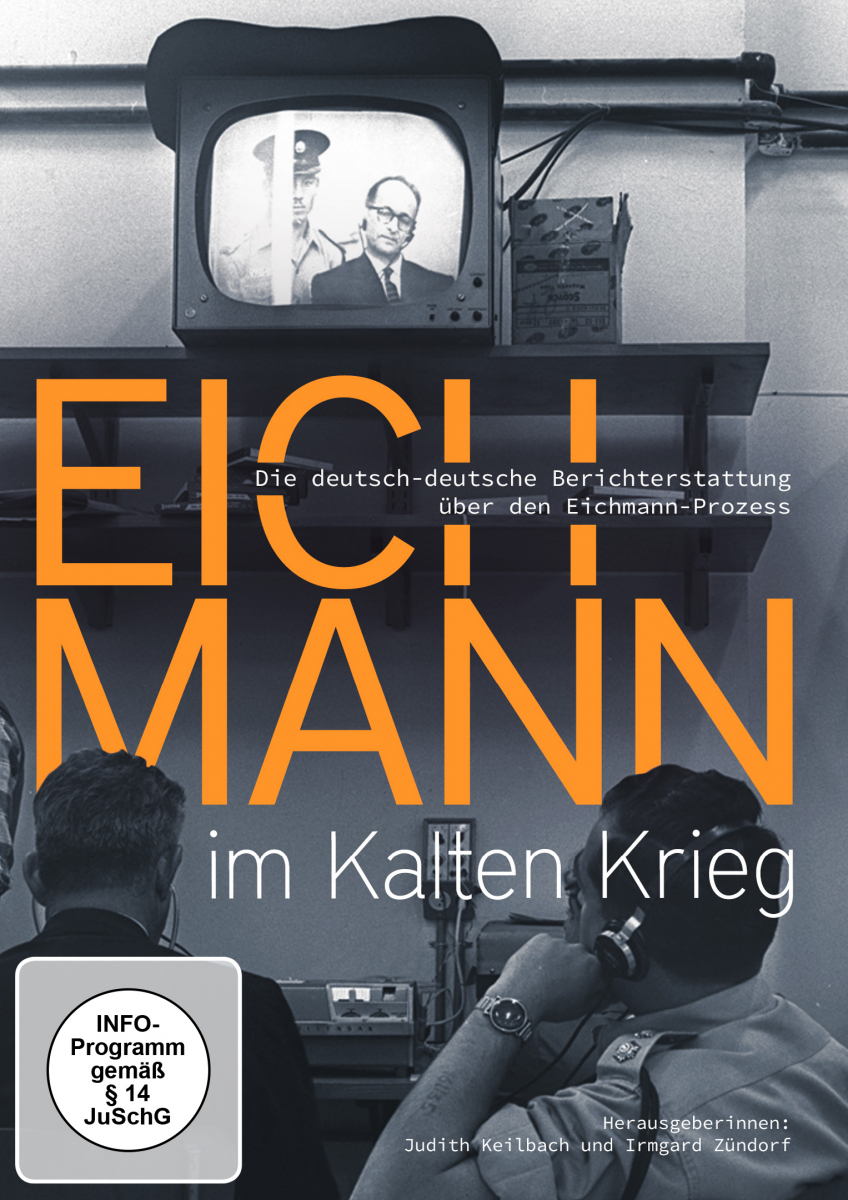Completed DVD project
Project management: Dr. Irmgard Zündorf (ZZF) and Dr. Judith Keilbach (University of Utrecht)
Project team: Tabea Georges, Linda Graul, Anna Kokenge, Vivien Püschel, and Laura Zimmermann (students of the Public History Master Program at Freie Universität Berlin and ZZF)
The coverage of the Eichmann trial in Jerusalem in 1961 is regarded as one of the first international media events. It not only served to make the National Socialist extermination policy known to a broad public, but was also shaped by the Cold War. Both the Federal Republic of Germany and the GDR instrumentalized the negotiations in order to discredit the other German state.
As a result of the project, a DVD with annotated historical video excerpts, audio documents and newspaper articles should be produced.
Adolf Eichmann stood trial in Israel in 1961. In his position as head of Division IV B 4 of the Reichssicherheitshauptamt (Reich Security Main Office) he had planned and supervised the deportations of European Jews to ghettos, labor camps and extermination sites during the period of National Socialism. After the end of WWII, Eichmann fled US custody and lived for several years as a woodworker in the Lüneburg Heath. In 1950 he managed to escape to Argentina under the name Ricardo Klement. Ten years later, in May 1960, he was kidnapped by the Israeli secret service Mossad and then put on trial in Israel. By the time his death sentence was pronounced on December 15, 1961, more than one hundred witnesses had been heard and over 1,500 incriminating documents had been presented.
The trial of Adolf Eichmann caused a worldwide sensation. Journalists, television and radio correspondents from all over the world followed the trial directly in the courtroom. In order to document the trial, the US production company Capital Cities received exclusive permission to film in the courtroom. The footage from Jerusalem was broadcasted in over 38 countries. Mostly, the material was incorporated into larger documentaries or news broadcasts. The two German countries also reported regularly on the Eichmann trial in various media. The project focused on these questions: Which recordings were selected for reporting, how were they commented on and contextualized? Within the framework of the project, East and West German print media, contributions from news broadcasts as well as feature films and documentaries from 1961-1962 were evaluated. The material for the DVD was then selected and background information compiled.
Film | Eichmann in the Cold War
German-German coverage of the Eichmann trial.
Editors: Judith Keilbach, Irmgard Zündorf
Project Editor: Tabea Georges, Linda Graul, Anna Kokenge, Vivien Püschel
published 2021 by: absolut Medien | Here you can order the DVD
Trailer for the DVD Eichmann in the Cold War (01:41 Min)


